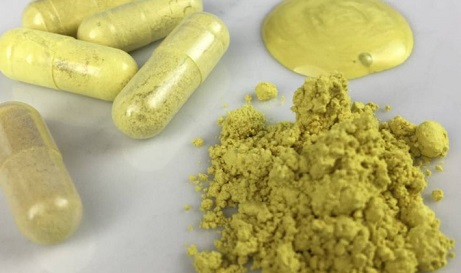COVID-19 News: Mexican Scientists Recommend Quercetin For Oxidative Stress Issues In Long COVID
Nikhil Prasad Fact checked by:Thailand Medical News Team Jan 11, 2024 2 years, 1 month, 2 weeks, 2 days, 16 hours, 12 minutes ago
COVID-19 News: The stupid conclusion of the health emergency declared by the World Health Organization (WHO) in May this year marked a significant milestone in the battle against the COVID-19 pandemic. As the current JN.1 surge is infecting tens of millions across the globe, the aftermath of the viral infection persisting in the form of Long COVID or post-acute sequelae of COVID-19 is posing another future healthcare crisis. This condition, characterized by a myriad of long-lasting symptoms even after recovery from acute infection as covered in various past
COVID-19 News coverages, poses a considerable challenge to the medical community. While effective treatments for persistent COVID are yet to be validated, Mexican scientists from Tecnológico Nacional de México/Instituto Tecnológico de Oaxaca propose the potential use of quercetin in managing oxidative stress issues associated with this post-infectious syndrome.
 Quercetin can Help In Long COVID Issues
Understanding Persistent COVID and Oxidative Stress
Quercetin can Help In Long COVID Issues
Understanding Persistent COVID and Oxidative Stress
Persistent COVID is a multifactorial pathology with various contributing factors, including the persistence of SARS-CoV-2 in body tissues, immune dysregulation, microbiota conditions, autoimmunity, and microvascular blood coagulation. Importantly, redox abnormalities resulting from mitochondrial functional instability and alterations in oxidative stress pathways play a crucial role in the pathogenesis of persistent COVID. Oxidative stress in this context is associated with a chronic hyperinflammatory condition, further exacerbating the symptoms.
Quercetin - An Antioxidant Powerhouse
Quercetin, a flavonoid found in various natural sources such as fruits, vegetables, seeds, and plant-derived beverages, emerges as a potential therapeutic agent due to its antioxidant properties. The chemical structure of quercetin enables it to neutralize free radicals, inhibit enzymes involved in cell death, and increase the production of endogenous antioxidants. Beyond its role in persistent COVID, quercetin has demonstrated efficacy in the treatment of Type 2 diabetes mellitus (T2DM), showcasing its versatility as a therapeutic agent.
Role of Quercetin in Persistent COVID Oxidative Stress
The oxidative stress observed in persistent COVID is linked to the cytokine storm, coagulation mechanisms, and hypoxia. Viral infections, including SARS-CoV-2, induce pro-oxidant responses, leading to an imbalance in the oxidative-antioxidant state and subsequent cell damage. Quercetin, with its antioxidant, anti-inflammatory, anticarcinogenic, and immunoprotective functions, addresses these challenges by promoting mitochondrial biogenesis, inhibiting lipid peroxidation, and controlling platelet aggregation.
Quercetin Mechanisms Against SARS-CoV-2
Quercetin exhibits promising antiviral properties by inhibiting enzymes involved in virus replication and altering the expression of SARS-CoV-2 target proteins. It has shown effectiveness against various viruses in vitro, i
ncluding rhinovirus, echovirus, coxsackievirus, poliovirus, herpes simplex virus, and dengue virus. Furthermore, quercetin's combination with Vitamin C demonstrates a synergistic effect, disrupting virus entry and replication while enhancing immune responses.
Challenges and Solutions in Quercetin Application
Despite its potential, the bioavailability and solubility of quercetin pose limitations to its efficacy. Factors such as plant type, maturity, and processing affect quercetin content in foods, making it challenging to achieve therapeutic levels through diet alone. Nanotherapy emerges as a potential solution, utilizing nanocarriers for improved delivery and retention of quercetin. Organic and inorganic nanoparticles present opportunities for enhancing quercetin's efficacy, addressing challenges related to its restricted transport across biological barriers.
Conclusion
In conclusion, the prevalence of persistent COVID symptoms underscores the need for effective treatments, and quercetin emerges as a promising candidate. Its multifaceted properties, including antioxidant, anti-inflammatory, and antiviral actions, position it as a potential therapeutic agent for managing oxidative stress in persistent COVID. As research continues to unravel the complexities of this post-infectious syndrome, quercetin's role holds promise in providing relief and improving the quality of life for those affected. The ongoing exploration of nanotherapeutic approaches further opens avenues for optimizing quercetin's bioavailability and enhancing its therapeutic impact.
The recommendations were published as an opinion piece in the peer reviewed journal: Frontiers in Nutrition.
https://www.frontiersin.org/articles/10.3389/fnut.2023.1278039/full
For the latest
COVID-19 News, keep on logging to Thailand Medical News
